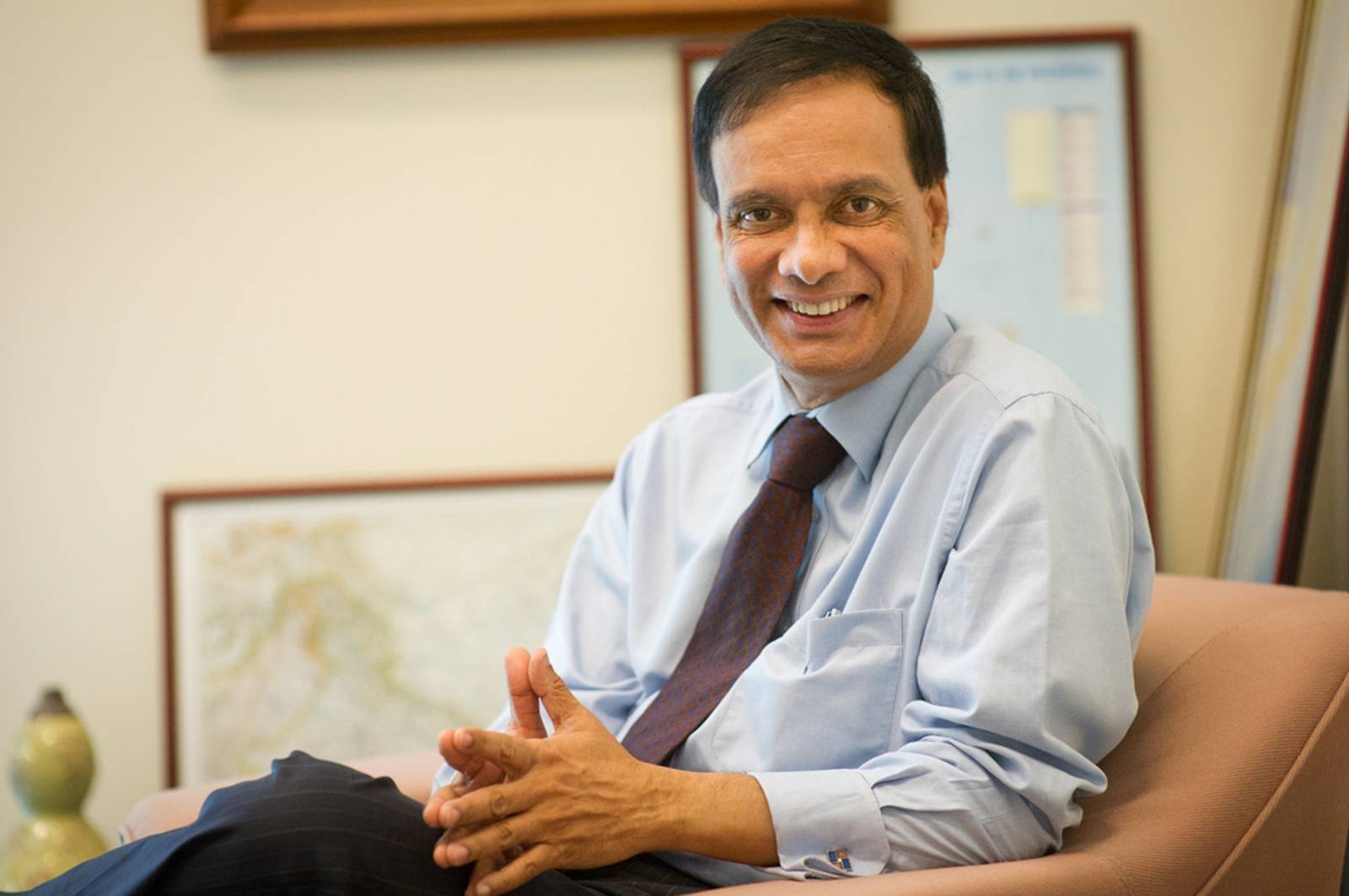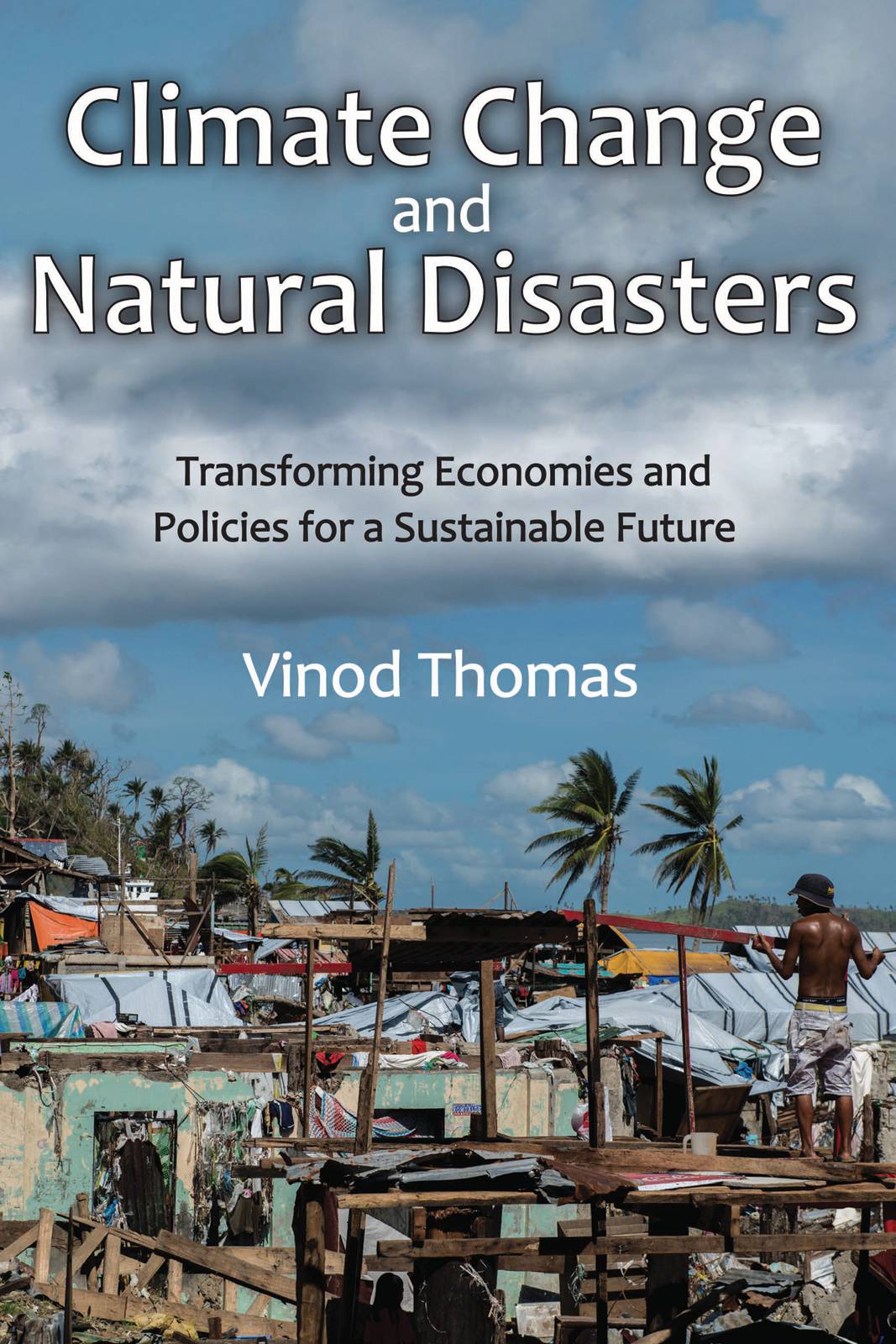The Economics of Climate Change
The Economics of Climate Change
Cheap energy isn’t really cheap anymore. The use of fossil fuels is a major cause of global warming, triggering more frequent and increasingly severe hurricanes and typhoons that are costing us billions every year. That’s the thesis of Climate Change and Natural Disasters by Vinod Thomas, a former member of Vassar’s economics faculty.

Thomas, who is currently director of independent evaluation for the Asian Development Bank in the Philippines, began to see the impact of climate change more than a decade ago while he was a senior vice president at the World Bank, helping countries in South America and Asia finance disaster relief efforts. In the book, Thomas focuses on the connection between carbon-based fuels and climate change. And he asserts a switch to renewable energy would not only help save the planet but also enrich the world economy. Recently, Thomas talked about his book – and offered his thoughts on the impact Donald Trump, an avowed global warming skeptic, will have on worldwide efforts to address climate change.
Q – A lot has been written about climate change, but some people still remain unconvinced it’s an immediate threat. How does your book debunk this premise?
A – Addressing climate change is necessary today, not tomorrow. It’s essential not only for our sustainability but also for our economic growth. Some people may argue that protecting the environment is a luxury while the poor need cheap energy to provide water and turn on the lights, and they maintain fossil fuels are the cheapest way to do that. But that’s no longer true. When you subtract the subsidies fossil fuels receive and add the health costs and the damages from an increasing number of natural disasters, this form of energy isn’t cheap at all. And those who are doing the polluting are hurt the least by the damage, and the poor are hurt the most.

Thomas's book is scheduled for release on Jan. 31. Read more.
Q – How is a gradually warming planet triggering so-called natural disasters? How do you respond to those who say the recent warming trend is simply part of a natural cycle?
A – The last 16 years have been among the hottest 17 on record. Scientific evidence is compelling that warming oceans are responsible for the increasing severity of floods and storms. The evidence is also convincing that the accumulation of carbon dioxide and other greenhouse gases have contributed to the warming. So, while scientists are reluctant to cite global warming as the cause of an individual calamity, the causal link among more emissions in the air from human activities, global warming and the uptick in climate related disasters (floods, storms, droughts and heat waves) is unmistakable.
Q – You note in your book that many world leaders have begun to address the issue, and the recent initiatives on carbon reduction hammered out at last year’s climate change summit in Paris have been ratified by more than 100 countries, including the United States. But why are some political leaders still reluctant to embrace this issue?
A- Preventing disasters doesn’t grab headlines the way responding to them does. Nobody gets on TV planning a preventive strategy; they get on the news delivering supplies and providing medical care to victims of disasters. Furthermore, preventive action delivers results over time, and often after an election cycle, thus taking away the incentive to spend time and money on prevention.
Q – In your book, you praise countries such as Germany that have taken the lead in reducing reliance on fossil fuels and promoting clean energy alternatives such as wind and solar power. You’ve even praised one of the world’s biggest polluters, China, for making some admittedly belated progress in curtailing carbon emissions. What initiatives are encouraging and what countries still have a long way to go?
A – Well, it’s certainly true that the countries that behaved the worst are sometimes in a position to show the most improvement, and that’s true in China’s case. China is moving forward on solar and wind, compiling a terrific record on the heels of a horrendous record. And if you’re looking for a particularly bad example, there’s Russia, which has actually been going backward in environmental protection. Russia is one of the countries that has yet to ratify the Paris accord on climate change. The Russian economy is also one of the worst in emissions per unit of output produced.
Q – President Donald Trump has stated publicly that he does not believe climate change is a man-made phenomenon. How worried are you that Trump and his energy advisers, many of whom are tied to the fossil fuel industry, could implement potentially damaging policies?
A – Two days before the U.S. presidential election, a United Nations conference on climate change convened in Marrakech. Because of the progress that had been made since the Paris conference, the mood was really upbeat. More than 100 countries had signed on to the Paris agreement, and at the same time, agreements had been reached in many countries to ban harmful hydrofluorocarbons commonly used in refrigerators and air conditioners, and there was a consensus being formed on cleaner, more efficient aviation fuels. Then came the news of Trump’s election and the mood in Marrakech changed to nothing short of despair. Candidate Trump pledged to walk away from the Paris agreements, boost fossil fuel production, negate the Obama administration’s bold steps to cut emissions from power plants and even abolish the Environmental Protection Agency. These promises are deeply disturbing. At the same time, President Trump would not want to be seen as someone reneging on global agreements. Pragmatically, it would be hard for him to give up that image of America being in the forefront of addressing a world problem, and I think someone like Trump would want to preserve his image. He’s already softening on some other campaign rhetoric, like building the wall, so I’m cautiously optimistic.
Q – But aren’t you still concerned that despite all the scientific evidence of global warming we are seeing with the spate of natural disasters and melting ice caps, Trump and other world leaders won’t address this issue in time?
A – I like to point to the example of our firefighters. They know the best way to save lives is to prevent the fires in the first place, so they spend 95 percent of their time working on prevention and only 5 percent of their time actually fighting fires. I think that’s a good recipe for what we need to do. The U.S. holds many of the keys to technological breakthroughs, especially in new infrastructure: higher efficiency, cleaner fuels; longer range electric cars; safer, smaller, self-driving cars; air and land based drones to deliver packages; energy storage; and renewable energy. These are good for business, for climate change, for better living. The vast majority of U.S. citizens want clean air and water. U.S. bureaucrats armed with these arguments will soon be working to convince Mr. Trump. The case for business opportunity and healthier living will probably be more persuasive than the argument for greenhouse gas reduction.